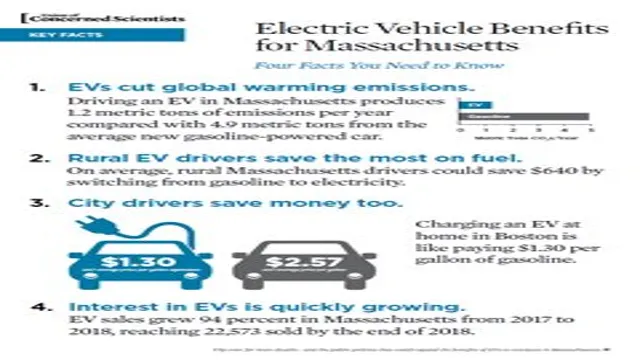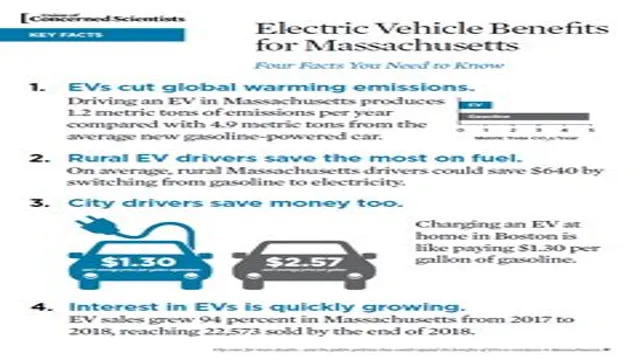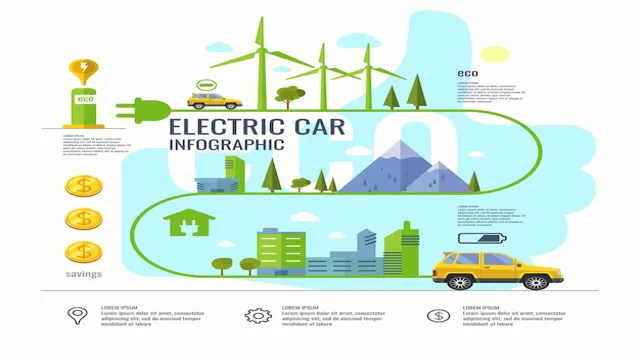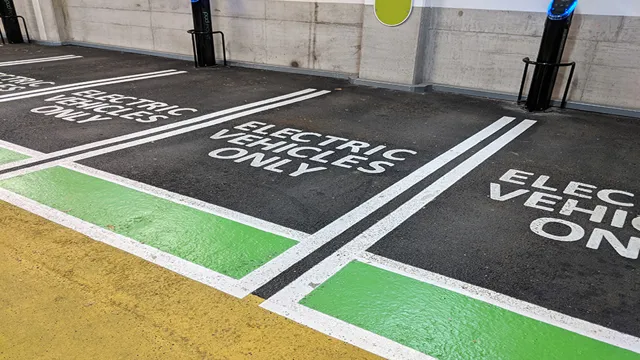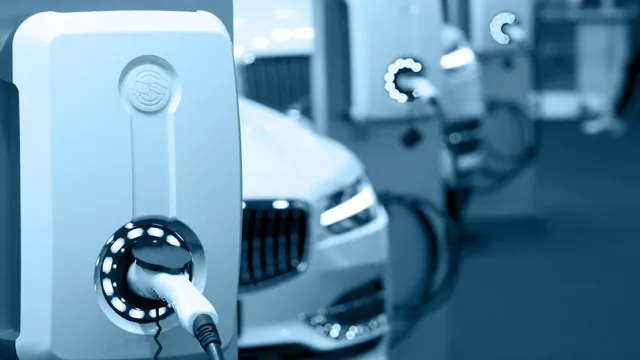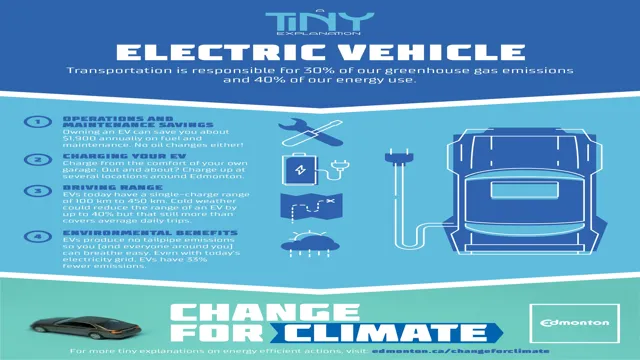Electric Cars: Unlocking Hidden Benefits with Benefit in Kind Tax
Electric cars have been making headlines for their eco-friendliness and cost-effectiveness. But did you know that they also offer an additional financial benefit in the form of reduced Benefit in Kind (BIK) tax? As governments around the world aim to reduce carbon emissions, they have introduced various incentives to encourage the use of electric vehicles, including tax adjustments for businesses. So, if you’re a company car driver or a fleet manager, you might want to explore this option further.
In this blog, we’ll delve into the details of Benefit in Kind tax and how it affects electric cars. Let’s get started!
What is Benefit in Kind Tax?
Benefit in kind tax for electric cars is a tax paid by employees for the ‘perks’ they receive from their employer. These ‘perks’ are usually non-cash benefits like a company car, private medical insurance, or gym memberships. However, the recent surge in electric vehicle (EV) adoption has brought the spotlight on benefit in kind tax for EVs.
When an employee receives an electric vehicle as a company car, they will be liable to pay benefit in kind tax for it. This tax is calculated based on the car’s list price, CO2 emissions, and battery range. The good news is that EVs typically have very low CO2 emissions and long battery ranges, resulting in a much lower benefit in kind tax bill compared to traditional petrol or diesel cars.
The UK government has also incentivized EV adoption by reducing the benefit in kind tax rate to 0% for company cars registered after April 6th, 2020. This makes it much more financially viable for employees to opt for an EV as a company car, which will ultimately reduce carbon emissions and help the environment.
Explaining the Tax
Benefit in Kind tax, commonly known as BIK, is a tax that is levied on employees who receive benefits from their employers. This tax is applicable when the benefit provided is not in the form of money or salary but instead something that is of value to the employee personally. For example, if an employee is given a company car for both personal and business use, they are liable to pay tax on the benefit by declaring it on their annual tax return.
Although BIK may seem like an additional tax on top of income tax, it is important to note that some benefits may actually be tax-free, such as workplace pension contributions. However, it is crucial that both employees and employers understand BIK and how it is calculated to avoid any unpleasant surprises at tax time. Awareness and proper calculation can help both parties to save time and money and ensure compliance with tax laws.
Calculation of the Tax
Benefit in Kind tax is a tax that is levied when an employer provides an employee with a benefit that is not part of their salary. This tax is calculated based on the cash equivalent of the benefit provided, and it is the responsibility of the employer to report and pay the tax to the relevant authorities. The calculation of the Benefit in Kind tax can be quite complex and can vary depending on the type of benefit provided.
For example, the tax on a company car will be based on the make, model, and fuel type of the vehicle, while the tax on private healthcare will depend on the type and level of cover provided. In some cases, employees may be required to pay the tax themselves, while in others, the employer may cover the cost. Benefit in Kind tax can be a confusing subject, but it is important for both employers and employees to understand their obligations to ensure compliance with tax laws and avoid penalties.
Why Electric Cars are Valuable?
The benefit in kind tax for electric cars is one of the many reasons why these vehicles are becoming more valuable. With the growing concern over our planet’s health and the need to reduce emissions, companies are encouraging employees to switch to electric cars by offering incentives such as reduced benefit in kind taxes. This is not only beneficial for the environment but also for our wallets.
Driving an electric car can reduce fuel costs and maintenance expenses as they require fewer components to maintain. Moreover, they are incredibly quiet and offer a smooth, comfortable ride. While the initial investment may be higher, the long-term benefits far outweigh the costs.
Not only are you doing your part for the environment, but you are also saving money in the long run. Electric cars are the future of transportation, and with the benefit in kind tax, it’s easy to see why more and more people are making the switch.
Zero Emissions
Electric cars have revolutionized the automotive industry in recent years, and for good reason. One of the most significant advantages of electric cars is their zero-emissions capability, making them an environmentally friendly option for drivers. Gasoline-powered cars emit harmful pollutants like carbon monoxide, nitrous oxide, and hydrocarbons, which contribute to air pollution and damage the environment.
Alternatively, electric cars produce no emissions, meaning they do not emit harmful pollutants into the air. Utilizing an electric vehicle means drivers can reduce their carbon footprint, leading to a cleaner and healthier world. This environmentally conscious aspect is one of the primary reasons why electric cars are essential in our current climate crisis.
With a rechargeable battery instead of burning fossil fuels, electric cars not only have lower operational costs but also have a more positive impact on the planet. By choosing electric cars, individuals can make a small but meaningful contribution in reducing greenhouse gas emissions and creating a sustainable future.
Low Maintenance Costs
Electric cars are valuable for many reasons, and one of the most compelling is their low maintenance costs. Unlike traditional gas-powered cars, electric vehicles have fewer moving parts, which means they require less maintenance overall. For example, EVs don’t need oil changes, air filter replacements, or emissions checks.
And because they don’t have a traditional internal combustion engine, there are no belts or transmissions to wear out. As a result, EV owners can expect to spend significantly less on maintenance over the life of their vehicle. This is a major selling point for consumers who are tired of constantly shelling out money for car repairs and maintenance.
Investing in an electric car may seem daunting at first, but the long-term savings on maintenance costs can make it a smart financial decision in the end. So, if you’re in the market for a new car and want to save money on upkeep, an electric vehicle might be the way to go.
Fuel and Tax Savings
One of the biggest advantages of driving an electric car is the significant fuel and tax savings. Since electric vehicles run on electricity instead of gasoline or diesel, they are much cheaper to power. On average, it costs around 60% less to recharge an electric car than to fill up a gas tank.
In addition, electric cars have much lower maintenance costs due to their simpler design and fewer moving parts. Furthermore, electric cars are not subject to the same taxes and regulations as traditional gas-powered vehicles. For instance, electric cars can qualify for federal and state tax incentives, which can significantly reduce the upfront cost of buying one.
Overall, electric cars are gaining in popularity because they offer a cost-effective and environmentally friendly alternative to traditional gasoline-powered vehicles. So, if you are looking for a fuel-efficient and cheaper mode of transportation, then an electric car may be the right choice for you.
Different Tax Rates for Electric Cars
For those considering purchasing an electric car, it’s important to be aware of the potential tax benefits. The benefit in kind tax for electric cars is different from that of gasoline-powered vehicles. This tax is calculated on the value of the car and is based on its CO2 emissions.
As electric cars have zero emissions, they are currently taxed at 1%, compared to gas cars, which can be taxed at up to 37%. This significant difference can result in substantial savings for drivers who opt for electric vehicles. Additionally, there are other tax incentives, such as exemption from road tax and reduced rates for company car tax.
Overall, the benefit in kind tax for electric cars not only provides financial benefits for drivers but also encourages the use of eco-friendly vehicles, contributing to a cleaner and greener future.
UK Tax Rates
The UK government has implemented different tax rates for electric cars, providing a significant monetary advantage for those looking to buy an eco-friendly vehicle. Owners of electric cars are exempt from paying the standard Vehicle Excise Duty (VED), which is typically required for petrol and diesel cars. Instead, they are subject to a much lower rate of tax, sometimes even zero.
This is due to the government’s efforts in promoting electric cars as a more sustainable alternative to traditional fossil-fuel-powered vehicles. By promoting the use of electric cars, the government is also hoping to help reduce the country’s carbon footprint and meet climate change targets. Overall, the tax benefits for electric car owners can save them hundreds of pounds each year, making them a more cost-effective and environmentally conscious choice in the long run.
Europe Tax Rates
Electric car owners in Europe enjoy different tax rates, depending on the country they are in. Some countries like the Netherlands offer tax breaks and exemptions for electric cars, making them a more financially attractive option. Other countries like France have a sliding tax scale based on the CO2 emissions, meaning the lower the emissions, the lower the tax rate.
This tax reduction applies to electric cars, making them a more affordable option. In the United Kingdom, electric car owners do not have to pay any vehicle tax and enjoy other financial benefits like grants and subsidies. However, in countries like Germany, electric car owners still have to pay the standard vehicle tax, which means that electric cars are not as financially attractive compared to other countries.
These varying tax rates across Europe create a complex landscape for electric car owners but ultimately support the adoption of greener and more sustainable transportation options.
Conclusion
In conclusion, the benefit in kind tax for electric cars is like taking a ride on a zippy, eco-friendly highway to tax savings. Not only do electric cars offer a reduced carbon footprint, but they also provide a little extra cushion in the form of reduced tax liabilities. So, why not make the switch to electric and drive towards a brighter, more cost-effective future!”
FAQs
What is benefit in kind tax for electric cars?
Benefit in kind tax is a type of tax that employees have to pay on any non-cash benefits they receive from their employer, including the use of an electric car for personal use.
How is benefit in kind tax for electric cars calculated?
Benefit in kind tax for electric cars is calculated based on the car’s list price, its CO2 emissions, and the employee’s income tax bracket. The lower the car’s emissions, the lower the tax rate.
Are electric cars exempt from benefit in kind tax?
No, electric cars are not completely exempt from benefit in kind tax, but they generally have lower tax rates than petrol or diesel cars due to their lower emissions.
How can I reduce benefit in kind tax for electric cars?
You can reduce your benefit in kind tax for electric cars by choosing a car with lower list price and lower CO2 emissions, as well as ensuring that the electric car is used primarily for business purposes rather than personal use.


